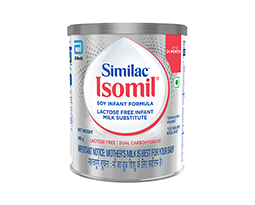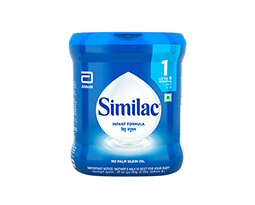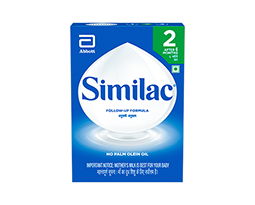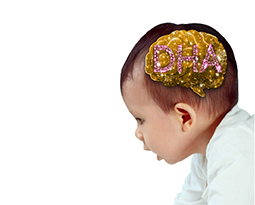INGREDIENTS: Whole milk powder, lactose, corn syrup solids, edible vegetable oils (13.56%) (soy oil, high oleic sunflower oil), whey protein concentrate, butter oil, medium chain triglyceride (MCT) oil, MINERALS*, VITAMINS**, AA from M. alpina oil, m-inositol, DHA titom C. cohnii oil, emulsifier (soy lecithin), nucleotides (0.0665%) (cytidine 5-monophosphate, disodium guanosine 5'-monophosphate, disodium uridine 5-monophosphate, adenosine 5'-monophosphate), taurine (0.0529%), L-carnitine, antioxidant (mixed tocopherols). 17.760 Contains Milk and Soy
SIMILAC NEOSURE
Similac Neosure
- Product Description
-
Similac NeoSure has been enriched with increased proteins and energy to help meet preterm infants nutrient requirements*
Similac Neosure provides Enriched Nutrition and supports Immune System Maturation for catch up growth1-5
Total Potentially Available Nucleotide (TPAN) and docosahexaenoic acid (DHA) present supports the immune system maturation6,7 of the preterm and low birth weight new-borns.
TPAN helps in T-cell maturation and increases antibody response6,8
DHA supports survival and helps reducing risk of Bronchopulmonary dysplasia and Necrotizing enterocolitis.
- Sample Available
- true
Nutrients
| Approximate Composition | Powder (per 100g) |
|---|---|
| Energy | 517 kcal |
| 2163 kJ | |
| Protein | 13.0 g |
| Fat (total fat) | 28.2 g |
| Milk fat | 12.0 g |
| Saturated fatty acids | 17.76 g |
| Monounsaturated fatty acids | 19.12 g |
| Polyunsaturated fatty acids | 5.44 g |
| Linoleic acid | 3000 mg |
| Alpha-Linoleic acid | 320 mg |
| Trans fatty acids | 0.80 g |
| Cholesterol | ≤80 mg |
| Added Sugars | 15.00 g |
| AA | 107 mg |
| DHA | 67 mg |
| Carbohydrate | 53.4 g |
| Total sugars | 27.9 g |
| Added Sugars | 22.9 g |
| Taurine | 34.4 mg |
| Carnitine | 16.0 mg |
| Inositol | 253 mg |
| Total nucleotides | 46.5 mg |
| VITAMINS | |
| Vitamin A | 3000 IU |
| 901 mcg RE | |
| Vitamin D2 | 600 IU |
| 15 mcg | |
| Vitamin E | 18.5 IU |
| 12.4 mg alpha-TE | |
| Vitamin K | 61.6 mcg |
| Vitamin C | 189.8 mg |
| Folic Acid | 190 mcg |
| Vitamin B1 (thiamin) | 905 mcg |
| Vitamin B2 (riboflavin) | 975 mcg |
| Vitamin B6 (pyridoxine) | 520 mcg |
| Vitamin B12 | 2.05 mcg |
| Niacin | 15.39 mg |
| Pantothenic acid | 3.59 mg |
| Biotin | 43.61 mcg |
| Choline | 82.0 mg |
| MINERALS | |
| Sodium | 221 mg |
| Potassium | 616 mg |
| Chloride | 384 mg |
| Calcium | 667 mg |
| Phosphorus | 333 mg |
| Magnesium | 61.6 mg |
| Iron | 9.2 mg |
| Zinc | 3.4 mg |
| Manganese | 51 mcg |
| Copper | 616 mcg |
| Iodine | 77 mcg |
| Selenium | 20 mcg |
Preparation
Standard reconstitution is one level scoop (approximately 5.1 g) of powder for each 30 ml of water or 155 g of powder diluted to 1 L, which supplies approximately 24 kilocalories per 30 ml.
- Thoroughly wash feeding bottle or bowl, nipple, cap and all utensils to be used in preparing the feeding.
- After rinsing soap from the utensils, boil them for 5 minutes
- In a separate pan, boil water to a rolling boil for 5 minutes and allow it to cool to a lukewarm temperature.
- Pour the correct amount of lukewarm, previously boiled water into the sterilized feeding bottle or bowl.
- Fill enclosed scoop, then scrape level with the straight edge of the knife.
- Add one level enclosed scoop (approximately 5.1 g) of Similac® Neosure® powder to each 30 ml of water in the bottle or bowl.
- Mix until completely dissolved.
- Test temperature and feed. After feeding, discard any unused formula within 1 hour.
Product Details
400gm Tin Pack (From birth up to 12 months)
Direction for Use and Suggested Feeding Schedule
To be taken under medical advice.
Consult your baby’s physician about how much your baby should be consuming.
These are suggested feeding intakes, every baby is different.
If more then one feed is prepared then it must be refrierated at 350 to 400 F and use within 24 hours. Once feed begins use within one hours or discard
| To Prepare One Feeding | |||
|---|---|---|---|
| Weight of Infant (grams) | No. of level scoop(s) | Warm (previously boiled) water, ml | No. of feeds per Day |
| 1000-1200 | 1 | 30 | 5-6 |
| 1200-1400 | 1 | 30 | 6-7 |
| 1400-1600 | 1 | 30 | 7-8 |
| 1600-2000 | 2 | 60 | 4-5 |
| 2000-2400 | 2 | 60 | 5-6 |
| Suggested Feeding Schedule | |||
|---|---|---|---|
| Approximate Body Weights, kg | No. of level scoop(s) | Warm (previously boiled) water, ml | No. of feeds per Day |
| 2.5-3.5 | 2 | 65 | 8-10 |
| 3.6-5.0 | 4 | 130 | 6-7 |
| 5.1-8.0 | 6 | 195 | 5-6 |
Storage Condition
Store unopened tin under normal room temperature conditions. Once this tin is opened, contents should be used within two weeks or within expiry date. Whichever is earlier. Cover opened tin and store in cool, dry place (not in refrigerator)
Important Notice
MOTHER’S MILK IS BEST FOR THE BABY
Breastfeeding provides the best nutrition and protection from illnesses of infants. For infants, breast milk is all that is needed for the first 6 months. Breastmilk is the best and most economical food for baby. Warning / Caution: Infant milk substitute is not the sole source of nourishment of an infant. Careful and hygienic preparation of infant milk substitute is most essential for health. Lactose- free infant milk substitute should only be used in case of diarrhea due to Lactose intolerance. Lactose- free infant formula should be withdrawn, if there is no improvement in symptoms of intolerance.
Continued use of infant milk substitute should not be recommended to avoid any difficulties in reverting to breastfeeding of infants after a period of feeding by infant milk substitute. In the event of recommending infant milk substitute in addition to breastmilk or its replacement during the first 6 months, keep the costs in mind. Un-boiled water, un-boiled bottles or incorrect dilution can make a baby ill. Always advise to follow instructions exactly. Unnecessary introduction of partial bottle-feeding or other foods and drinks will have negative effect on breastfeeding.
Characteristics of breastmilk: Immediately after delivery, breastmilk is yellowish and sticky. This milk is called Colostrum, which is secreted during the first-week of delivery. Colostrum is more nutritious than mature milk because it contains more protein, more anti-infective properties, which are of great importance for the infant’s defence against dangerous neo-natal infections. It also contains higher levels of Vitamin “A”.
Advantages of breastfeeding:
(A) Breastmilk is a complete and balanced food and provides all the nutrients needed by the infant; (for the first six months of life)
(B) Breastmilk has anti-infective properties that protect the infants from infection in the early months;
(C) Breastfeeding is much cheaper than feeding infant milk substitutes as the cost of extra food needed by the mother is negligible as compared to the cost of feeding infant milk substitutes;
(D) Breastmilk is always available;
(E) Breastmilk needs no utensils or water (which might carry germs) or fuel for it’s preparation;
(F) Mothers who breastfeed usually have longer periods of infertility after child birth than non-lactators.
Management of breastfeeding, as under:
i. Breastfeeding
a.) Immediately after delivery enables the contraction of the womb and helps the mother to regain her figure quickly.
b.) Is successful when the infant suckles frequently and the mother wanting to breastfeed is confident in her ability to do so.
ii. In order to promote and support breastfeeding the mother's natural desire to breastfeed should always be encouraged by giving, where needed, practical advice and making sure that she has the support of her relatives.
iii. Adequate care for the breast and nipples should be taken during pregnancy.
iv. It is also necessary to put the infant to the breast as soon as possible after delivery.
v. Let the mother and the infant stay together after the delivery, the mother and her infant should be allowed to stay together (in hospital, this is called "rooming- in").
vi. Give the infant Colostrum as it is rich in many nutrients and its anti-infective factors protect the infants from infections during the few days of its birth.
vii. The practice of discarding Colostrum and giving sugar water, honey water, butter or other concoctions instead of Colostrum should be very strongly discouraged.
viii. Let the infants suckle on demand.
ix. Every effort should be made to breastfeed the infants whenever they cry.
x. Mother should keep her body and clothes and that of the infant always neat and clean.
Abbott Healthcare Pvt Ltd,
Floor 17th, Godrej BKC, Plot C-68, G-Block, Bandra Kurla Complex, Near MCA Club, Bandra (East), Mumbai 400051. India
This information is for healthcare professionals only.
References
1. Gladstone M, Oliver C, Van den Broek N. Survival, morbidity, growth and developmental delay for babies born preterm in low and middle income countries - a systematic review of outcomes measured. PLoS One. 2015;10(3):e0120566.
2. Martin CR, Brown YF, Ehrenkranz RA, et al. Nutritional practices and growth velocity in the first month of life in extremely premature infants. Pediatrics. 2009;124(2):649-57.
3. Lucas A, Fewtrell MS, Morley R, et al. Randomized trial of nutrient-enriched formula versus standard formula for postdischarge preterm infants. Pediatrics. 2001;108(3):703-11.
4. Tissières P, Ochoda A, Dunn-Siegrist I, et al. Innate immune deficiency of extremely premature neonates can be reversed by interferon-γ. PLoS One. 2012;7(3):e32863.
5. Dewey KG, Mayers DR. Early child growth: how do nutrition and infection interact?. Maternal & child nutrition. 2011 Oct;7:129-42.
6. Buck RH, Thomas DL, Winship TR, et al. Effect of dietary ribonucleotides on infant immune status. Part 2: Immune cell development. Pediatr Res. 2004;56(6):891-900.
7. Fink NH, Collins CT, Gibson RA, et al. Targeting inflammation in the preterm infant: The role of the omega-3 fatty acid docosahexaenoic acid. Journal of Nutrition & Intermediary Metabolism. 2016; (5):55-60.
8. Pickering LK, Granoff DM, Erickson JR, et al. Modulation of the immune system by human milk and infant formula containing nucleotides. Pediatrics. 1998;101(2):242-9.
* Similac Neosure Core Claim Document
RELATED PRODUCTS

Similac Isomil
Similac Isomil® is formulated specially for infant feeding needs from birth. Similac Isomil® is a soy-based milk free, lactose free spray dried infant formula, to meet the special nutritional needs of infants suffering from Diarrhea, Cow’s Milk Protein Allergy (CMPA) & lactose intolerance.

Similac Stage 1
Similac Stage 1 is a scientifically formulated to meet the nutritional requirements for babies up to 6 months of age. Similac is a cow’s milk-based, iron-fortified feeding formula with nutrient composition clinically shown to support infants’ growth and development similar to that of the breastfed infants. SIMILAC is formulated as per standards laid down by Bureau of Indian Standards (BIS).

Similac Stage 2
Similac Stage 2 is a scientifically formulated to meet the nutritional requirements for babies after 6 months of age. Similac is a cow’s milk-based, iron-fortified feeding formula with nutrient composition clinically shown to support infants’ growth and development similar to that of the breastfed infants. SIMILAC is formulated as per standards laid down by Bureau of Indian Standards (BIS).
RELATED CONTENT

Key Factors for Optimal Neural Development & Cognition
Optimal nutrition during in first two years of life is essential for supporting critical periods of fetal growth and development and for fueling infant and toddler growth (until two years of age). It is during this “golden opportunity window” that the cognitive, emotional and behavioural patterns in a child shape up.

Minimize Risk of Malabsorption in Infants with Dual Carbohydrate Formulation
Lactose malabsorption is one of the most common problems encountered in children with Diarrhea. Minimize Risk of Malabsorption in Infants with Dual Carbohydrate Formulation

Natural Vitamin E- Smarter Choice for Growing Children
Infant brain development is the fastest in the early years of life compared to the rest of the body. The neonatal brain, which is one-third to one-fourth of the size of the adult brain at birth, grows rapidly to reach 72% of adult volume within the first year, suggesting that the majority of brain growth happens during the first year of life.
IN-SIM-JUL-2022-1657274314



